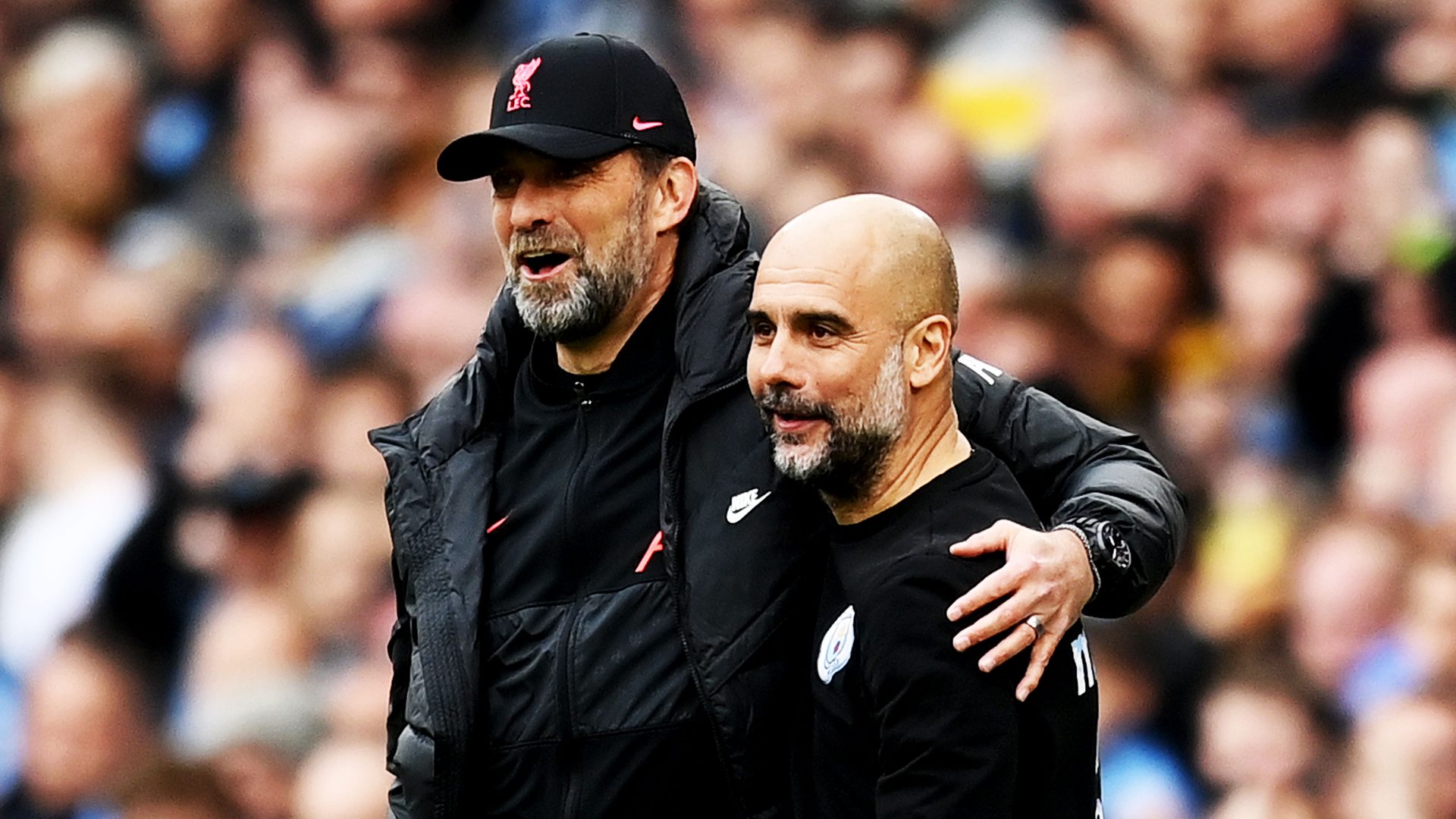No man is an island, and no football manager is likely to achieve the permanent footholds on which Matt Busby, Alex Ferguson and Bill Shankly
built their careers and the ethos of their clubs.
Yet in agreeing new contracts at Liverpool and Manchester City, Jürgen Klopp and Pep Guardiola are putting down roots that are rare in modern
life, let alone in the ephemeral world of football. Why would they leave? They are chasing perfection.
They are protagonists of very different styles. Their title-challenging teams reflect their personalities. And though they are foreigners in a country that has just readopted island mentality, they are digging in to make their clubs the most successful not only in Little England, but on earth.
Pep walked away from Futbol Club Barcelona, where he was an infant, a player, a coach in the purist concept of the game most of us have seen. Jürgen burned out his own hyper intensity at Dortmund, where he dared for two whole seasons to knock Bayern Munich off their perch of seemingly
permanent omnipotence among German clubs.
Players, not managers, make great teams. The managers are not even singular any longer because when Klopp or Guardiola negotiate new terms to stay in post they are securing employment for at least three men – themselves and their assistant coaches, plus all of the backroom (grown out of the Anfield Boot Room) staffers in sports medicine, admin, analytics, scouting and even in multilingual, multi-faith human resources around the dressing rooms.
The buck still stops with the manager. Yet even when we perceive stress on their brows, I think back to Bob Paisley, the assistant and successor to Shankly, saying no one could survive the pressures in football without support from everyone from the doorman to the tea lady up.
We do indeed see a continuation of that and of the remarkable bond that
Klopp has revived between the manager and the crowd at Anfield. If there is unity anywhere that rivals the Reds and the Spion Kop, it is the Südtribüne at Borussia Dortmund. Klopp’s earthy personality makes him a modern Shankly, conducting the Kop Choir just as he appealed physically and spiritually to Dortmund’s fanatical Yellow Wall.
The supporters are the cliched 12th man to a Klopp team, although today
they are as likely to be female as male. Klopp, quite literally and instinctively,
would hug them all.
The investors Fenway Sports Group who put this man, this crowd, this
team together have shown rare American appreciation of what makes
European football such a phenomenal participation event. And of course,
they make it pay not simply in competing for silverware, but in such
self-sufficient financial contracts as the Standard Chartered shirt sponsorship that is reportedly about to be doubled to £80m per season.
That might even keep Mo Salah at Anfield. It might also extend the careers of James Milner and Jordan Henderson, two core English players in their 30s who were there before Klopp arrived to rebuild the current global squad. The recruitment around them, procured either by or for Klopp, seem to blend instantly and remarkably given that Diogo Jota and Luis Diaz have instantly challenged the established forward line.
City, of course, are a different kettle of fish. The Qatari state-owned club was purposely redesigned for Guardiola’s arrival in July 2016. The team in the boardroom, the scouting structure, the administration was plucked out of Barcelona because what the sheikhs admired from the Gulf was precisely what they would pay to replicate in Manchester.
Guardiola’s football is Total Football perpetuated. He was a child of the Dutch style that Rinus Michels and his star Johan Cruyff perfected in Barcelona and is now replanted by Arabic financial power into the light blue of City. Beautiful it is, almost purist in the way that Guardiola puts style equal, at least, to the unremitting physicality that makes the Premier League premier.
The argument in Germany and in England is that Klopp has built his teams on high intensity and gung-ho attacking flair. There is plenty of that, but the cerebral defending of Virgil van Dijk, the quarterback precision of Thiago Alcântara, the sheer effort over every blade of grass emanates from the boss, Klopp.
And City? Hypnotic and at full flow the most captivating sight in football. Guardiola is criticised in Germany and England as merely inheriting fine
teams. I’m not sure I care, or agree. His principles are supreme, his aim expansive, and he recently proved that he is willing to get down and dirty.
We haven’t seen that often because Guardiola’s teams are made to outwit
opponents. But in Madrid last month, his team fought to eliminate Diego Simeone’s nasty brand of European warfare.
Simeone’s Atleti fight in the shadow of opulent neighbours, Real Madrid.
He has gifted players, but incites them to kick, elbow, barge, and pull opponents by the hair.
His neighbour, Carlo Ancelotti, has just become the only manager to win
titles in all five top European leagues – Italy (AC Milan), England, (Chelsea),
France (PSG), Germany (Bayern) and Spain (Real).
Ancelotti is a grandfather, a nomad, a chameleon. He changes according to
the talent at his disposal. After 42 years, thus far, playing, coaching and winning, he explains his success by raising an eyebrow and saying succinctly: “But, this is the life.”




